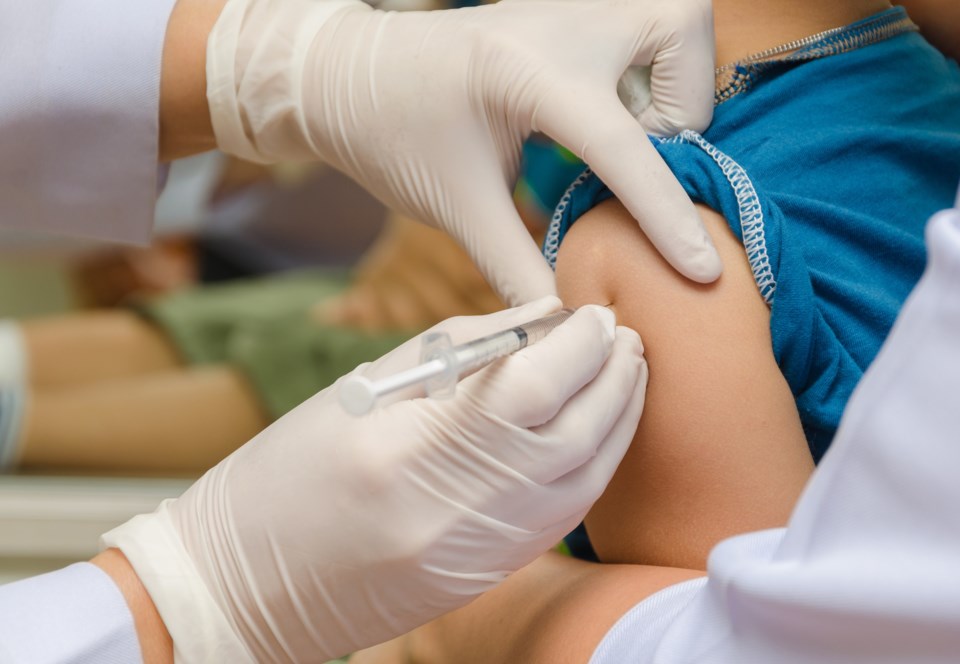Bradford residents aged 50+ living in the postal code area 'L3Z' will soon be eligible for a COVID-19 vaccine.
The province recently released its list of 'hot spot' communities within 13 public health units across Ontario, including Simcoe-Muskoka. Bradford's 'L3Z' postal code was the only community identified in the region.
According to the chief medical officer of health for the region, Dr. Charles Gardner, the postal code-based hotspots were chosen for their high incidence of COVID-19 and low prevalence of vaccinations.
“We are preparing to make available to that particular community an immunization specific to this purpose,” said Gardner.
"Delivering vaccines to people who live in these areas is critical to reducing the impact of COVID-19 as quickly as possible, and the Ministry of Health is working with public health units to ensure timely access to vaccines among the identified communities through all available vaccine delivery channels, including pharmacies, mass vaccination clinics, and mobile teams. The province is supporting regions to vaccinate individuals aged 50 and over by postal code in these COVID-19 hot spot zones," read a press release from the Office of the Premier.
A spokesperson for the Simcoe Muskoka District Health Unit says planning is underway to find ways to bring the vaccine to the identified groups through special clinics.
Gardner says it’s important to stay the course when it comes to the vaccine rollout and continue prioritizing those most vulnerable in order to do the most good.
Over the last few weeks, the provincial roll-out and local programs have opened to a wider age group, but a large majority of the region, and even the province, has not received a single dose of any vaccine against COVID-19.
“This is something that takes time … so it’s important that we do it in a sequence that achieves the greatest good by focusing on those who are most vulnerable first and then working our way down to others,” said Gardner.
Individuals who are 60 years old or older in 2021 can book an appointment via the provincial booking system.
There is also a program allowing people aged 55 to 59 years old to book an AstraZeneca vaccine through a local pharmacy, or through an Ontario Health Team in Simcoe-Muskoka.
Phase two also includes people with high-risk and chronic medical conditions. This category is further broken down into three priorities starting with highest-risk, then high-risk, then at risk.
The health unit is working with local hospitals and primary care leads to identify people with the medical conditions listed by the province. Once identified, the health unit or primary care provider will reach out to offer a vaccine.
“Certainly I encourage people to take the first vaccine that they can get, no matter what type it is,” said Gardner. “If you qualify for it and you can get a booking for it, accept it, because the prevalence of COVID-19 in our community is rising, the variants of concern are rising, risk is rising and this is one of the critical ways in which you can protect yourself.”
To date, 18,000 people have received two doses of vaccine, and a total of 111,750 doses have been administered in the region. This includes 7,500 doses of AstraZeneca vaccine administered by family health teams.
According to the health unit, the vaccination breakdown by age group in the region is as follows:
- 83 per cent of adults 80 and over have had at least one dose
- 63 per cent of adults between 75 and 79 years old have had at least one dose
- 90 per cent of adults 70 and older have received an immunization or they are booked to receive an immunization
- 96 per cent of residents living in long-term care facilities have received one dose (most have received two)
- 97 per cent of residents living in retirement homes have received one dose (most have received two)
- 88 per cent of staff working in long-term care and retirement homes
- 68 per cent of hospital staff
- 71 per cent of other health care workers have received a single dose
-with files from Erika Engel



